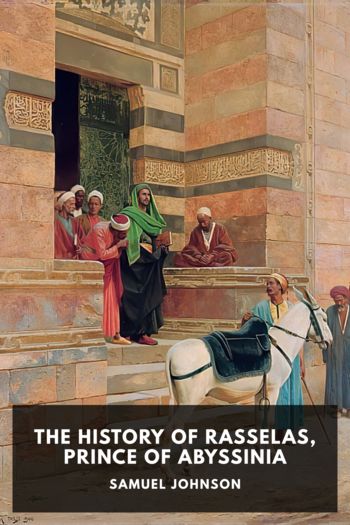author - "Samuel Johnson"

Description
Rasselas is a fable-like story, more apologue than novel, written by Johnson in 1759 to help pay for the costs of his recently-deceased mother’s funeral. While the plot is basic and the characters are thin, the work is an important philosophical piece exploring whether or not humanity can attain happiness.
Rasselas, an Abyssinian prince, travels with his sister Nekayah, her handmaiden Pekuah, and the wise poet Imlac—a proxy for Johnson himself. Their exploration of happiness and the meaning of leading a happy life is a complex and subtle one, though the work ends with “nothing concluded.” Johnson leaves the reader to ponder: Can an individual ever attain happiness in any meaningful sense?

Samuel Johnson (18 September 1709 [O.S. 7 September] – 13 December 1784), often referred to as Dr Johnson, was an English writer who made lasting contributions to English literature as a poet, essayist, moralist, literary critic, biographer, editor and lexicographer. Johnson was a devout Anglican and committed Tory, and has been described as "arguably the most distinguished man of letters in English history."[1] He is also the subject of "the most famous single work of biographical art in the whole of literature": James Boswell's Life of Samuel Johnson.[2]

Description
Rasselas is a fable-like story, more apologue than novel, written by Johnson in 1759 to help pay for the costs of his recently-deceased mother’s funeral. While the plot is basic and the characters are thin, the work is an important philosophical piece exploring whether or not humanity can attain happiness.
Rasselas, an Abyssinian prince, travels with his sister Nekayah, her handmaiden Pekuah, and the wise poet Imlac—a proxy for Johnson himself. Their exploration of happiness and the meaning of leading a happy life is a complex and subtle one, though the work ends with “nothing concluded.” Johnson leaves the reader to ponder: Can an individual ever attain happiness in any meaningful sense?

Samuel Johnson (18 September 1709 [O.S. 7 September] – 13 December 1784), often referred to as Dr Johnson, was an English writer who made lasting contributions to English literature as a poet, essayist, moralist, literary critic, biographer, editor and lexicographer. Johnson was a devout Anglican and committed Tory, and has been described as "arguably the most distinguished man of letters in English history."[1] He is also the subject of "the most famous single work of biographical art in the whole of literature": James Boswell's Life of Samuel Johnson.[2]